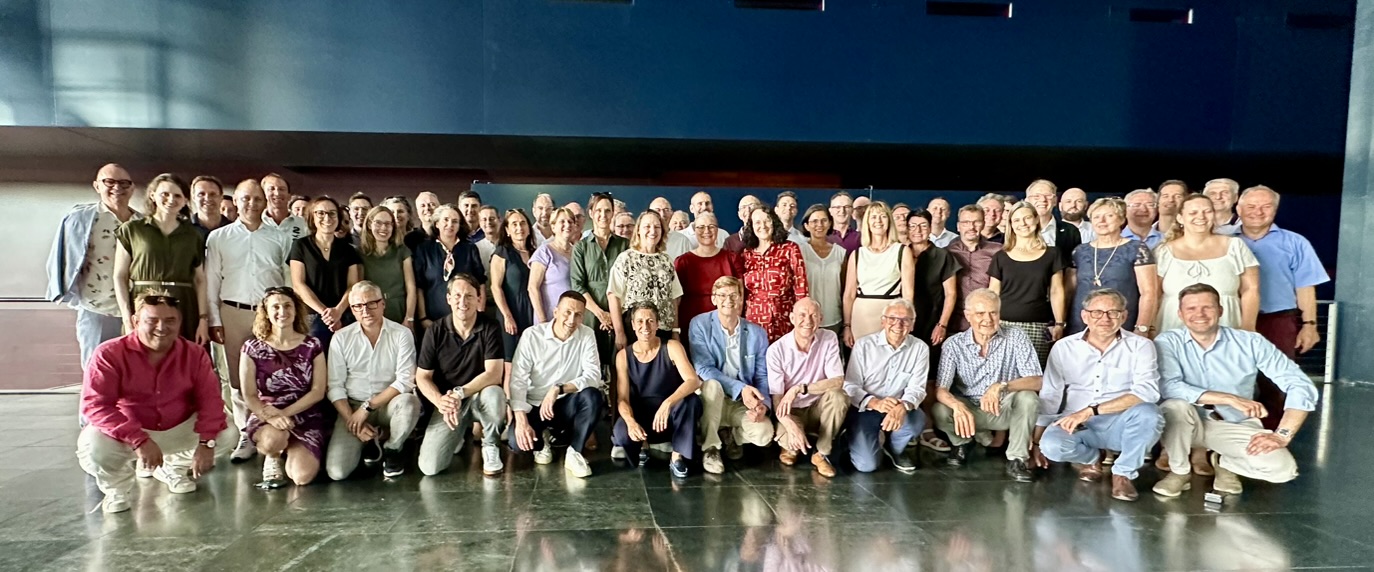23. Februar 2018
MSc IFM: Semester 1 – A successful start to school in Switzerland




by Prof. Dr. Imke Keimer, Head of MSc International Financial Management, Prof. Dr. Stefan Hunziker, Head of MSc International Financial Management, and Marcel Greimel, Master’s Assistant at the Institute of Financial Services Zug IFZ

Fourteen weeks of class. Six exams. Countless coffees. Four textbooks bought. Two read. One semester completed. Zero bitcoins bought.
I’d call that a successful start to graduate school.
The opportunity to study at Lucerne School of Business has been filled with first time experiences. The train comes on time, Swiss students wrap their knuckles on tables to express an appreciation for a presentation, and the lecturers exist outside the classroom. So far, I’ve been spoilt with the array of cultures offering their perspective towards theorems of economic and psychological nature. Albeit, a timidness from some cultures exists in the classroom, but after a cheeky beverage at Pier 41 these walls quickly crumble. Although we’re born in different countries, at different times, with different norms and experiences, we’re able to bond over the mutual interest of the pursuit of knowledge. A common objective, creating an open environment where respect reigns and unique lessons flow.
Applying one of these lessons is the need to determine a fundamental objective. Those trained in emotions and at inner peace with themselves may be able to answer this question with relative ease – the average person not so likely. Although I’ve been attending yoga, utilising the university sports program, I can admit I’m not at that spiritual level…yet. Rather, using the “five why” technique, I may be able to drill down to what I’m really working towards, allowing me to see the trees and the forest. For instance:
- I want to study abroad. Why?
- To broaden my horizons and live in a different country. Why?
- Because I can experience more and have a story to tell. Why?
- So I can increase the range of opportunities available to me. Why?
- Sitting idle watching life go past does not make me happy.
Evidently, my fundamental objective is to have options and be active. Ironically, finance lessons preach a passive strategy to more likely bestow higher returns (accounting for fees). Whilst this approach may be applicable for a portfolio of stocks, is there more that exists? Sure, monetary objectives are important, but when you’re 65 with all the money in the world, can you really enjoy travelling as much compared to when you had your youth? Well that’s simple, we discount the forecasted experience back to its net present value and go from there… good luck with that. A dollar today is worth more than a dollar tomorrow, yet, the same could be said for an experience. My father adopts similar reasoning when ignoring the perils of consuming bacon, “I could get hit by a bus tomorrow…”, true story.
My statistics class would hypothesise, with 95% confidence, that it’s unlikely to be hit by that bus. But they would also state that you’ll be average in everything you do. If your objective is to be average, then sure, nodding along with the status quo may attain just that. Even consciously opposing this bias, the odds are stacked against you to be anything else but mediocre. Yet, I doubt that’s the goal in mind for most. This highlights the need to define our objectives, since if you don’t know where you’re going, any route will get you there.
Our measurement for success will serve as a function of its achievability. How cool is that? We are all the authors and protagonists of our own story with the ability to shift our paradigm to determine success. At the same time, the choice resides with us to feature in another’s narrative. I look forward to sharing these experiences as my chapter continues at Lucerne School of Business.
This might interest you, too:
MSc in International Financial Management – Managing performance in a global economy



Kommentare
0 Kommentare
Danke für Ihren Kommentar, wir prüfen dies gerne.